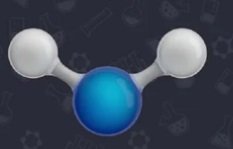
In a promising development, scientists at the Agharkar Research Institute in Pune, India, have engineered new non-toxic molecules with potential to revolutionize Alzheimer’s treatment. This breakthrough comes at a critical time when Alzheimer’s disease continues to affect millions of people globally, creating an urgent need for innovative, safe therapies.
Understanding Alzheimer’s Disease
Alzheimer’s disease is a progressive neurodegenerative disorder and the most common cause of dementia, accounting for 60-70% of cases among the 55 million people worldwide living with dementia. This debilitating condition leads to memory loss, cognitive decline, and behavioral changes, often disrupting patients’ and families’ lives. Alzheimer’s is marked by an imbalance of brain hormones and neurotransmitters, notably a decrease in acetylcholine, a neurotransmitter essential for memory and learning. As acetylcholine levels decline, Alzheimer’s symptoms worsen, creating a significant therapeutic target.
Limitations of Current Treatments
Presently, treatments for Alzheimer’s focus on symptom management rather than addressing the disease’s root causes. Unfortunately, these treatments come with side effects, and many lack the efficacy required for long-term disease control. There is an urgent need for safe, effective therapies that address Alzheimer’s progression and provide lasting relief.
The Breakthrough Molecules
Researchers at the Agharkar Research Institute developed novel molecules through an advanced “one-pot, three-component” reaction, which enables rapid, efficient synthesis of high-yield compounds. Crucially, these new molecules are non-toxic, making them promising candidates for extended treatment use without the risk of harmful side effects.
Targeting Cholinesterase Enzymes
A key finding of this research is that these molecules effectively inhibit cholinesterase enzymes, which break down acetylcholine in the brain. By inhibiting this enzyme, the new molecules help maintain higher acetylcholine levels, potentially enhancing memory and cognitive functions in Alzheimer’s patients. This approach addresses one of the fundamental biochemical deficits of Alzheimer’s and could signify a turning point in therapeutic outcomes.
Research Methodology
The development process was thorough, combining synthetic chemistry, computational studies, and in vitro experiments to validate safety and efficacy. Using synthetic chemistry, scientists crafted the new molecules, while computational studies assessed their effectiveness and predicted safety profiles. In vitro testing confirmed the compounds’ impact on cholinesterase activity, providing a foundation for clinical feasibility. This layered approach enhances the credibility of these findings and bolsters confidence in the potential clinical applications of these molecules.
Implications for Broader Neurodegenerative Treatments
Beyond Alzheimer’s, this research may hold promise for other neurodegenerative conditions, such as Parkinson’s and Huntington’s disease. A focus on non-toxic compounds is particularly relevant, as it opens the door to long-term treatment options with minimal side effects. These findings underscore the potential for similar approaches to improve patient outcomes across a range of neurodegenerative diseases.
The Road Ahead
While these findings are promising, further research, including clinical trials, is essential to determine the full scope of these molecules’ effectiveness in human subjects. Additional studies will also aim to better understand the molecules’ mechanisms of action within the brain, contributing to advancements in Alzheimer’s research. The work of the Agharkar Research Institute highlights the value of innovative scientific approaches in tackling complex diseases, marking a significant milestone in the ongoing fight against Alzheimer’s.
As research progresses, these non-toxic molecules may bring hope to millions worldwide, representing not only a potential solution for Alzheimer’s but also a pioneering step in neurodegenerative disease treatment.

